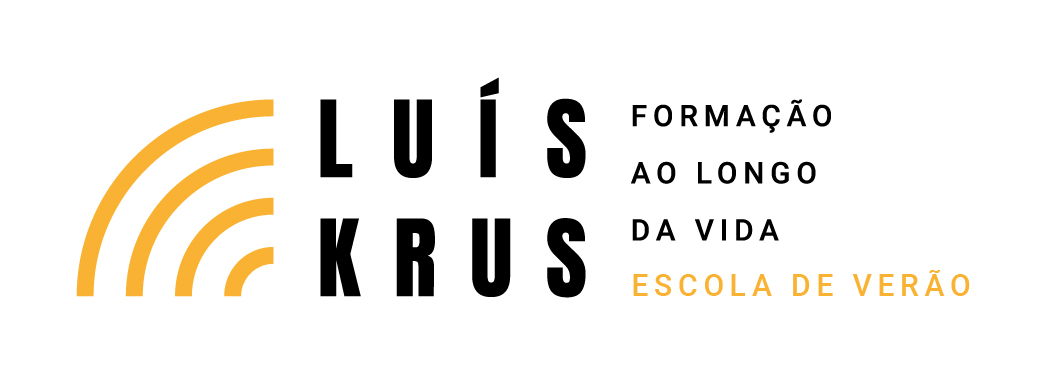
Aby Warburg and the Afterlife of Antiquity: Art, Culture and Memory
This course will be taught online
GOALS
____
This course explores the thought of German historian and theorist of art and culture Aby Warburg (1866–1929), analysing some of his seminal works. Students will develop appropriate critical and analytical skills through reading and discussing philosophical and interdisciplinary texts on topics related to cultural memory, hereditary memory, empathy, style, symbols, and the role of biology in the creation, transmission, and perception of images. Furthermore, students will learn to navigate theoretical thinking by addressing philosophical questions, including: How to explain the recurrence of certain iconographic motifs in art history? What is the role of biology in cultural studies?
ProgramME
____
CLASS ONE (7 July, 14h00–15h00)
First Teachers and Studies (1886–88)
- Ernst Gombrich, Aby Warburg: An Intellectual Biography (London: The Warburg Institute, 1970), pp. 25–42.
CLASS TWO (9 July, 14h00–16h00)
The Dissertation on Botticelli (1888–91)
- Aby Warburg, ‘Sandro Botticelli’s Birth of Venus and Spring: An Examination of Concepts of Antiquity in the Italian Early Renaissance’, in Warburg, The Renewal of Pagan Antiquity, trans. by David Britt (Los Angeles: The Getty Research Institute, 1999), pp. 89–156.
CLASS THREE (14 July, 14h00–16h00)
Warburg’s Interdisciplinary Approach (1891–97)
- Gombrich, Aby Warburg, pp. 67– 95.
CLASS FOUR (16 July, 14h00–16h00)
The Afterlife of Antiquity
- Warburg, ‘The Emergence of the Antique as a Stylistic Ideal in Early Renaissance Painting’, in The Renewal of Pagan Antiquity, pp. 271–274.
- Gombrich, Aby Warburg, pp. 96–127.
CLASS FIVE (21 July, 14h00–16h00)
On Leonardo da Vinci (1899)
- Warburg, Three Lectures on Leonardo 1899, trans. by Joseph Spooner (London: The Warburg Institute, 2019).
CLASS SIX (23 July, 14h00–16h00)
The Stars (1908–14)
- Warburg, ‘Italian Art and International Astrology in the Palazzo Schifanoia, Ferrara’, in The Renewal of Pagan Antiquity, pp. 563–592.
CLASS SEVEN (28 July, 14h00–16h00)
The Lecture on Serpent Ritual
- Warburg, ‘A Lecture on Serpent Ritual’, trans. by W. F. Mainland, The Journal of the Warburg Institute, 2: 4 (1939), pp. 277–292.
CLASS EIGHT (30 July, 14h00–16h00)
The Theory of Social Memory
- Gombrich, Aby Warburg, pp. 239–259.
CLASS NINE (4 August, 14h00–16h00)
The Life of Symbols (1926–29)
- Warburg, ‘Dürer and Italian Antiquity’, in The Renewal of Pagan Antiquity, pp. 553–558.
CLASS TEN (6 August, 14h00–16h00)
The Last Project: Mnemosyne
- Warburg, Der Bilderatlas Mnemosyne, ed. by Martin Warnke and Claudia Brink (Berlin: Akademie Verlag, 2003).
- Warburg, ‘The Absorption of the Expressive Values of the Past’, trans. by Matthew Rampley, Art in Translation, 1 (2009), pp. 273–283.
CLASS ELEVEN (11 August, 14h00–16h00)
The History of Warburg’s Library (1886–1944)
- Warburg, ‘From the Arsenal to the Laboratory’, translated by Christopher D. Johnson, ed. by Claudia Wedepohl, West 86th, 19: 1 (2012), pp. 106–124.
- Saxl, ‘The History of Warburg’s Library (1886–1944)’, in Gombrich, Aby Warburg: An Intellectual Biography, pp. 325–338.
CLASS TWELVE (13 August, 14h00–16h00)
Edgar Wind Interpreter of Warburg (1931/1934)
- Edgar Wind, ‘Warburg’s Concept of Kulturwissenschaft and its Meaning for Aesthetics’, in Wind, The Eloquence of Symbols: Studies in Humanist Art, ed. by Jaynie Anderson (Oxford: Oxford University Press, 1983), pp. 21–35.
CLASS THIRTEEN (18 August, 14h00–16h00)
Wind vs Gombrich on Warburg (1971)
- Wind, ‘On a Recent Biography of Warburg’, in The Eloquence of Symbols, pp. 106–113.
BIBLIOGRAPHY
____
- Freedberg, David, and Claudia Wedepohl (eds), Aby Warburg 150: Work, Legacy, Promise (De Gruyter, 2024).
- Gombrich, Ernst, Aby Warburg: An Intellectual Biography (The Warburg Institute, 1970).
- Sears, Elizabeth, ‘Aby Warburg’s Hertziana Lecture: 1929’, The Burlington Magazine, 165: 1445 (2023), pp. 852–873.
- Tononi, Fabio, ‘Aby Warburg and Edgar Wind on the Biology of Images: Empathy, Collective Memory and the Engram’, in Edgar Wind: Art and Embodiment, edited by Jaynie Anderson, Bernardino Branca and Fabio Tononi (Peter Lang, 2024), pp. 47–72.
- Warburg, Aby, The Renewal of Pagan Antiquity: Contributions to the Cultural History of the European Renaissance, translated by David Britt (The Getty Research Institute, 1999).
pré- requesits
____
The course will be entirely in English. Therefore, an intermediate knowledge of the English language is required.
TEACHERS
____
João Luís Lisboa is currently the director of CHAM. Full professor in the History Department (NOVA FCSH), he was Visiting Professor at the University of Eastern Piedmont (Vercelli), UniTo (Turin), Unicamp (Campinas, Brazil) and USP (São Paulo, Brazil). Between 2004 and 2014 he was the director of the Centre for the History of Culture (CHC) at UNL, where he coordinated the ‘Book and Reading’ line of research. He is currently a member of the ‘Reading and forms of writing’ group at CHAM. His main focus has been on problems of culture in modern Portugal, in particular the relationship between forms and meanings in communication in the 18th century. He also works on questions of knowledge and methodology in the history and theory of ideas. Throughout his teaching career, which began in 1982/83, he has taught at primary, secondary and polytechnic colleges. He has been a lecturer at NOVA FCSH since 1989. He was director of the Portuguese Book and Library Institute.
Fabio Tononi is a Postdoctoral Research Fellow at the Centre for the Humanities (CHAM) of the Faculty of Social and Human Sciences of NOVA FCSH, University of Lisbon, Portugal. He teaches philosophy at the Luís Krus Centre – Lifelong Learning of the Faculty of Social and Human Sciences of NOVA FCSH, University of Lisbon. Tononi is Principal Investigator (PI) of an exploratory project titled IMCS – Imagination and Memory at the Intersection of Culture and Science (2023–2025), funded by CHAM. He is co-founder and co-editor-in-chief of the Edgar Wind Journal (ISSN 2785-2903), and a member of the Poetry Society, London. In 2021, Tononi received a PhD from the Warburg Institute. In 2016, he obtained an M.A. in Art History, Curatorship and Renaissance Culture from the Warburg Institute in collaboration with the National Gallery of London.
